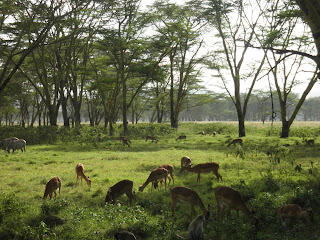Whilst I am all for strengthening the role that social science research plays it is a very broad church with myriad epistemological pitfalls - I wonder how the post will be described and the person chosen? And how will they practice in rleation to social science and other sciences? Might there be an opportunity to cultivate a reflexive, community of practice of chief scientists?
"Cabinet Office plans ‘evidence’ centres
As government prepares to announce chief social scientist
by Penny Sarchet
Around six institutes are being planned, which the government is calling What Works centres. The centres’ assessments will be used to inform decision-making in government departments. More details are expected by the end of February.
Research Fortnight has learned that the centres are to be modelled on the National Institute for Health and Clinical Excellence. NICE assesses evidence on the effectiveness of medical treatments and provides guidance to the National Health Service on whether these treatments should be purchased.
The Cabinet Office, which also houses the government’s Behavioural Insights team, is known to favour a NICE-type approach in other areas of government policy.
In 2011, the Cabinet Office announced in a white paper that the government would consult on how to establish credible accreditation bodies that would mirror the work of NICE in other areas of public services. It said that public services require “robust accreditation of what works”.
Leading social scientists have welcomed the news. David Hand, professor of statistics at Imperial College London, says: “It’s about time we put more effort into evidence-based social policy.”
Keiron Flanagan, lecturer in science and technology policy at the University of Manchester, adds that NICE-like bodies could be important for pointing out what he calls “dodgy” claims made by ministers about policies that are not supported by evidence. But the centres, which will not be directly testing new policies, would need good evidence to work with. “In many policy areas, there is not good evidence available,” he says.
Similarly, Mariana Mazzucato, professor at the University of Sussex’s Science and Technology Policy Unit SPRU, warns that external advice cannot substitute for a lack of expertise within government, something that she says the US is better at. “The Department of Energy is run by a Nobel [laureate],” she says. “Just as important as thinking about external ‘advice’ is the need to reinvigorate the status of government, so that it attracts the brightest young minds, and hence sector-specific expertise and talent.”
“Instead, what we have been witnessing in the UK is the downgrading of what government is seen to be able to do, and its budget to do it,” she adds.
Hand, in contrast, says: “Having external and independent opinions is very important—not only to ensure that the right things are done, untarnished by ideology, but also so that people can see that the right things are being done.”
In a related development, a long-awaited decision on the appointment of a government chief social scientist is thought to be imminent. The naming of such an adviser is expected to be among the first announcements that Mark Walport will make after becoming government chief scientific adviser in April.
“This is something that’s been talked about since [former Home Office chief scientific adviser] Paul Wiles retired,” comments Hand. “Clearly it’s a good idea. It seems odd to me that there isn’t one, [as] you could describe a lot of our economic and social problems as problems of social science. We live in a society, we function in an economy—those are all social science areas. I’m surprised, to be honest, that there isn’t more government emphasis on the social sciences and the solutions provided by the social sciences,” he says.
Flanagan, however, says he has conflicting feelings about the possibility of a chief social scientist. “I would be reluctant to see social science separated out from natural and physical science, and I imagine that a chief social scientist would not have the clout of the chief scientific adviser. However, I don’t believe for a moment that the UK science lobby, who see the CSA not just as an adviser but as a champion for science in government, would ever accept a social scientist as government CSA.” "










